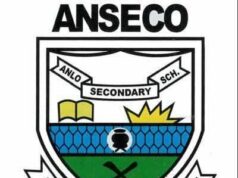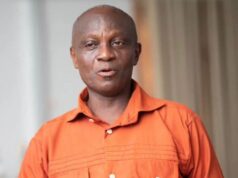Beginning from the 2019/2020 academic year, the Ghana Education Service (GES) will roll out a new educational curriculum that will focus on the total development of the child and not be examination-focused, to discourage learning by rote, also known as ‘chew, pour, pass and forget.
The Executive Secretary of the National Council for Curriculum and Assessment (NaCCA), Dr Prince Armah, who disclosed this in an interview with the Daily Graphic, said the new curriculum would shift away significantly from cognitive development to one that would nurture values and build character.
Why a new curriculum?
Dr Armah said Ghana could not continue that kind of educational system, adding: “We need the genius, and if all we do is ‘chew, pour, pass and forget’, how can we be genius? We need skilled people to propel our economic aspirations and the school system that can help foster that is technical and vocational education.”
Describing the current school system as “defective”, he said the current educational system measured people purely on cognitive ability, but Ghana did not need people who were knowledgeable alone.
“We need people who are empathetic; we need people who have fellow feeling; we need people who are tolerant and these values cannot be assessed using cognitive instruments alone.
“So the development assessment framework is one that will not only measure or emphasise cognitive but also look at the values and attitudes that will make the person fit into society efficiently,” he explained, saying that would be the basis of the curriculum reform.
He added that the new curriculum sought to develop people who would be able to fit into the development priorities of the country.
Terminal exams
Dr Armah hinted that beginning from the next academic year, terminal examinations would no longer focus on objective questions but that “we will be seeing competencies” through engaging the pupils with activities.
“We are moving away from questions that demand the children to state or mention theoretically. For instance, students will not be allowed to mention the history of their community.
“To recount the history of their community, there are some historical places in town that the children have to visit, such as the chief’s palace, the old chapel, the grove and other places, so that in answering such a question, the child can construct from evidence, such as a sketch of the palace or the chapel he saw during the visit,” he explained.
That would allow learners to discuss their search and sketches, bringing out similarities and differences in the sites they visited, he said.
“So it is a complete shift and more activity-based,” he stated.
The new curriculum covers pupils from the kindergarten through primary, junior high school (JHS) to senior high school (SHS).
Faulty system
Dr Armah, who also described the educational system as faulty in terms of preparing students to fit well into society, wondered why an employer looking for a cashier or a fuel attendant should look out for a degree holder.
“Do we need someone with a degree to do those kinds of jobs? But because we did not prepare our secondary school people to fit efficiently into that work space, employers are looking for graduates to go and sit behind the counter to receive money to put in a safe, when the skills we have built in them at the degree level could be applied in higher levels,” he explained.
Dr Armah said Ghana needed secondary education graduates who could function efficiently, adding that the new curriculum would address such shortcomings.























